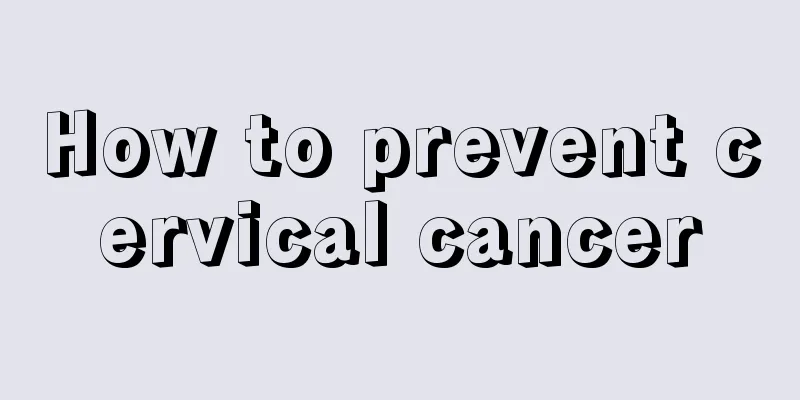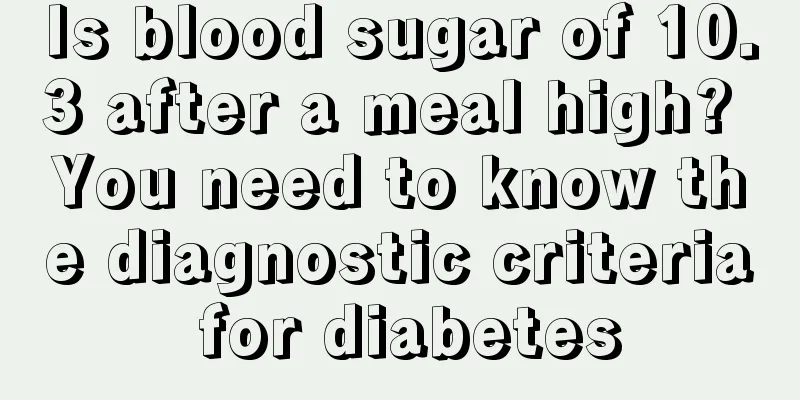Stomach bloating and pain after eating

|
The fast-paced life has caused many young people to be under great pressure in their daily lives. Bad habits such as often going to bed late and going to bed early, irregular eating habits, overeating, etc. can easily lead to stomach diseases. Many people experience abdominal bloating and pain after meals. Usually, if this symptom occurs in the body, especially if it happens frequently, it is best to go to the hospital for relevant examinations. What causes stomach bloating and pain after eating? It is most likely caused by gastrointestinal dysfunction or indigestion. It is best to go to the hospital and take medication under the guidance of a doctor, and avoid spicy, irritating, and raw or cold foods. These symptoms in the body indicate indigestion 1. Abdominal bloating The first symptom of indigestion is "abdominal bloating". The food fills up the stomach and cannot move down. When you touch the stomach with your hand, you feel that there is gas or hard objects in the stomach. This is your sign that your stomach is full and you can't eat any more! 2. Vomiting, acid reflux and hiccups If the food is packed full and there is no time for digestion to flow towards the intestines, when it is bloated to a certain extent, it will rush upwards and cause vomiting of food residues. Hiccups and acid reflux are caused by food remaining in the stomach for too long, producing sour gas. 3. Constipation and diarrhea Indigestion can easily cause gastrointestinal flora imbalance, thus causing diarrhea. If food stays in the gastrointestinal tract for a long time, it will form toxins and stool, causing gastrointestinal dysfunction and eventually leading to constipation. If you experience symptoms such as early satiety (feeling full shortly after eating, resulting in a significant decrease in food intake), difficulty swallowing, upper abdominal pain, vomiting blood, black stools, etc., you need to suspect that the indigestion is already quite serious and it is best to seek medical treatment immediately. Five tips to help you digest quickly 1. Take a walk after dinner. Walking half an hour after a meal can effectively promote gastrointestinal motility and accelerate the digestion and absorption of food in the stomach. 2. Drink wine in moderation. The acidity of wine can stimulate the stomach and promote the secretion of digestive juices. 3. Drinking honey and lemon tea can promote gastrointestinal motility, accelerate the digestion of food, and play a role in appetizing and digesting food. 4. Self-massage. Massage the Zhongwan point 300 times in a clockwise direction; press the Zhongwan point until you can hear a slight peristaltic sound in the stomach. |
<<: Is anal fistula surgery a major operation?
>>: Headache when sleeping at night
Recommend
What is the best and fastest way to remove acne scars?
In the era of high-speed development, people pay ...
The main factors in life that may lead to laryngeal cancer
The cause of laryngeal cancer is relatively compl...
What are the symptoms of colorectal cancer
In daily life, people are familiar with colorecta...
What to do if a boil forms after being bitten by an ant
Ants are relatively small insects. Under normal c...
Can lung nodules be cured
It is quite distressing for patients with lung no...
Diet for a 68-year-old male with bladder cancer
Bladder cancer affects our lives, so it is very i...
Can people with high blood pressure eat pickled vegetables? Dietary taboos
Many people develop high blood pressure when they...
What should I pay attention to in my diet during chemotherapy for colon cancer?
The best time to treat cancer is the early stage ...
What to do if black bugs grow in rice
If black bugs grow in the rice, don't be too ...
What kind of soap is good for bathing
Paying attention to hygiene is a characteristic o...
What are the functions of yeast tablets
In our lives, our physical health often has some ...
Introduction to the main characteristics of bladder cancer symptoms
The chance of bladder cancer symptoms appearing i...
What are the methods for cleaning air cushion puffs
For women, air cushion powder is a very popular p...
What are the most obvious symptoms of nasopharyngeal cancer?
What are the most obvious symptoms of nasopharyng...
What to do if dentures fall out
We use teeth to chew food, but in life, many peop...









